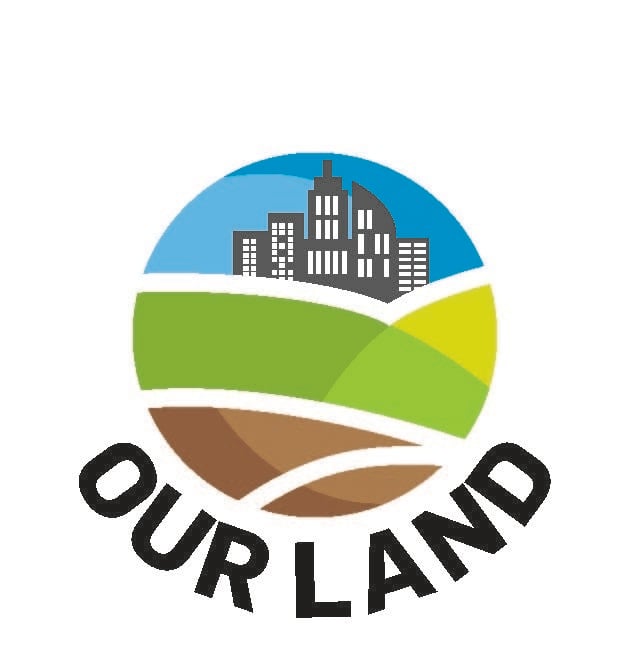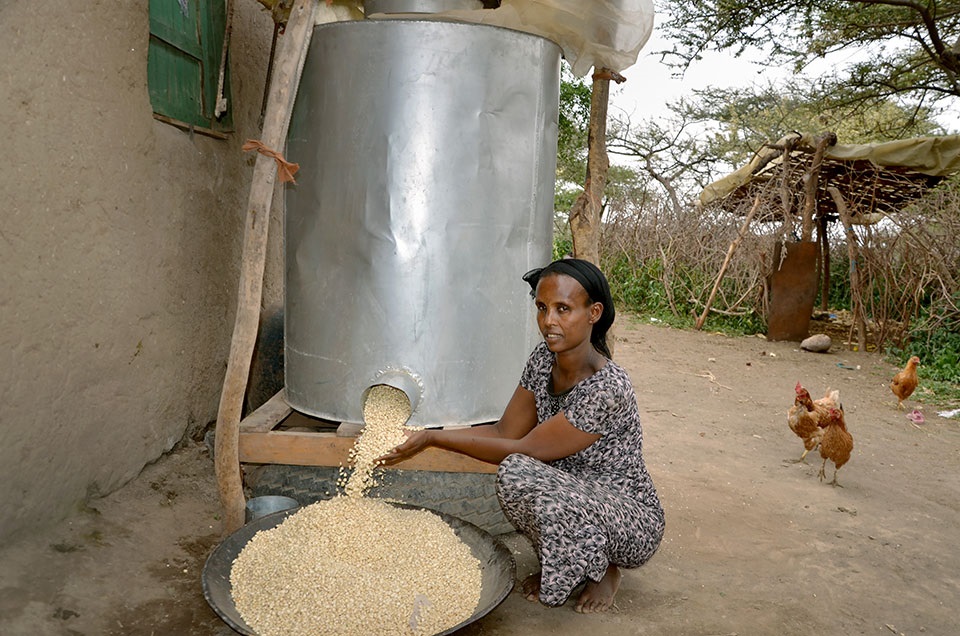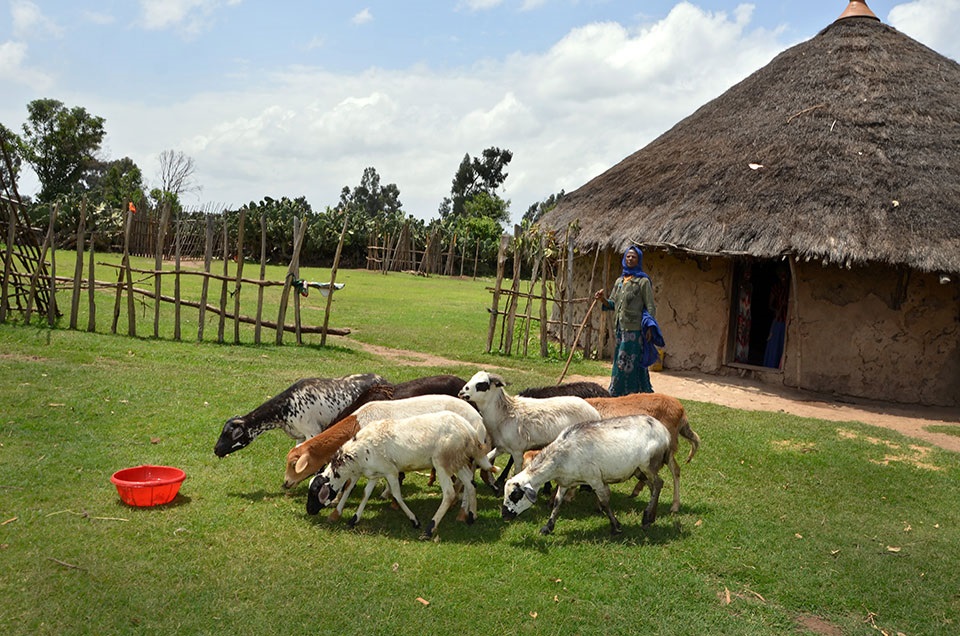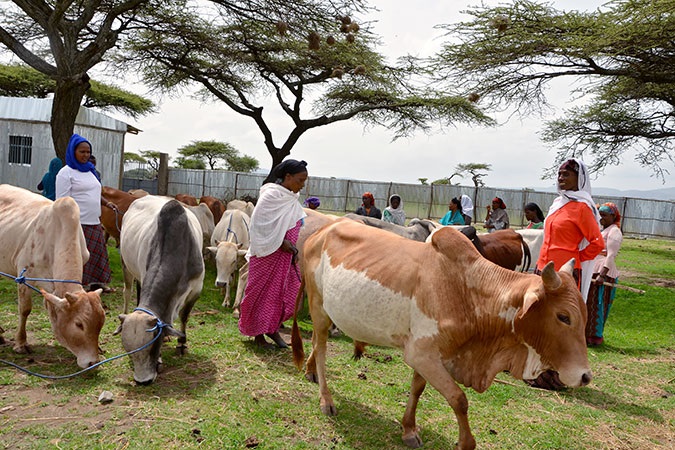
This feature is part of a journalism partnership called Our Land between City Press, Rapport, HuffPost SA, Landbouweekblad and Code for Africa to find the untold stories, air the debates, amplify the muted voices, do the research and, along the way, find equitable solutions to SA’s all-important land issue.
In most parts of the Dodola district, 300km south of Ethiopia’s capital, Addis Ababa, slow-moving oxen are seen ploughing open stretches of farmland. But in one field, a red tractor is speedily tilling women-owned cooperative farmland ahead of the rainy season.
For Kamso Bame, a widowed mother of 12 and owner of 2.5 acres of land, the tractor has shaved off days of gruelling labour.
Bame is among more than 2 000 smallholder women farmers involved in a joint UN programme to boost sustainable agricultural production and rural women’s economic empowerment, through training and cooperatives.
After Bame joined the women’s cooperative in her village of Wabi Burkitu, she received a 7 000 Birr (R3 430) loan, which she used to start a cart-transport service. Bame uses her daily average income of 400 Birr (R196) to support her children, four of whom live independently. Her membership also enables her to cultivate the land using a tractor owned by the cooperative.
“Before the death of my husband, whenever the rainy season came, I remember him spending three to four days ploughing the family’s land with the pair of oxen we owned. Each day, he and the oxen used to come back home exhausted,” she recalls. “Today, it is different, as I am privileged to farm the same land with a tractor and it takes a maximum of three hours.”
The tractor is used to farm the land owned by the cooperative as a team, as well as each member’s own land. The cooperative also rents it out to other farmers in 26 villages across the district, whose population is more than 240 000. Charging up to 1 500 Birr (R735) per hectare, the cooperative currently earns more than 6 000 Birr (R2 940) per day, on average.
For Tulule Knife, a 38-year-old member of a cooperative in the Adami Tullu district of the Oromia region, the training sessions she received have improved her yields and provided a livelihood for her family of nine.
“My village is known for growing maize in traditional ways, which involves scattering seeds by hand all over the prepared land,” she explains. Last year, equipped with new sustainable farming techniques, Knife sowed wheat seeds, a rarity since it doesn’t yield enough grains using traditional planting methods.
“During last year’s planting season, I sowed 50kg of improved wheat seeds using a better way of planting I learned from the training known as line sowing. I harvested 15 quintals of wheat and sold that to the community for 15 000 Birr (R7 338). With traditional planting, for the same amount of seeds and other inputs, there are times when the yield is not even a quarter of that.”
She says that some members of her community found it so unbelievable, they accused her of witchcraft. But the village administration acknowledged her publicly, awarding her a modern grain storage facility. Knife now trains men and women farmers in these new agricultural techniques and has organised a self-help savings group of 20 members.
The impact of the programme has been profound, says Alima Bakuye, chair of the Abune Gawano cooperative in Adami Tullu district.
“The support is a turning point in effectively empowering the women and in making it a norm that women are benefiting and owning assets equal to men. For example, children and youth in the community used to refer to assets owned by the family, such as livestock, as ‘my father’s sheep’ and ‘my father’s goats’. Today, they are saying ‘my mother’s sheep’, ‘my mother’s goats’. This leads to a long-term change as it is impacting future generations.”
According to Letty Chiwara, the United Nations women representative for Ethiopia, agricultural cooperatives — especially those established by women in rural areas — play a key role in enhancing productivity through sustainable farming practices.
“Injecting basic labour and time-saving technologies, along with the relevant knowledge, to smallholder women farmers’ cooperatives are critical elements in the sustainable escalation of the value chain in agriculture. This, in turn, results in quality of life improvements for women farmers and communities at large,” she says.
Launched in the regions of Afar and Oromia in 2014, the five year programme works with 10 cooperatives, with 48 to 516 members each. Beyond the more than 2 000 direct beneficiaries, 14 000 family members and 32 000 community members are benefiting indirectly.
The joint programme, accelerating progress towards the economic empowerment of rural women, is being implemented by the government of Ethiopia in partnership with UN Women, the International Fund for Agricultural Development, the World Food Programme and the Food and Agriculture Organization. The programme is supported by the government of Spain through the Sustainable Development Goals Fund, as well as the governments of Sweden and Norway
•Women comprise an average of 43% of the agricultural labour force in developing countries, varying considerably across regions from 20% or less in Latin America to 50% or more in parts of Asia and Africa. Despite the regional and sub-regional variation, women make an essential contribution to agriculture across the developing world.
•Women farmers control less land than do men, and also have limited access to inputs, seeds, credits, and extension services. Less than 20% of landholders are women. Gender differences in access to land and credit affect the relative ability of female and male farmers and entrepreneurs to invest, operate to scale, and benefit from new economic opportunities.
•Women are responsible for household food preparation in 85-90% of cases surveyed in a wide range of countries.
•From 1990 to 2010, more than 2 billion people gained access to safe drinking water, but 748 million people are still without clean drinking water.
•Women, especially those in poverty, appear more vulnerable in the face of natural disasters. A recent study of 141 countries found that more women than men die from natural hazards. Where the socioeconomic status of women is high, men and women die in roughly equal numbers during and after natural disasters, whereas more women than men die (or die at a younger age) where the socioeconomic status of women is low. Women and children are more likely to die than men during disasters.
•Women and children bear the main negative impacts of fuel and water collection and transport, with women in many developing countries spending from 1 to 4 hours a day collecting biomass for fuel. A study of time and water poverty in 25 sub-Saharan African countries estimated that women spend at least 16 million hours a day collecting drinking water; men spend 6 million hours; and children, 4 million hours. Gender gaps in domestic and household work, including time spent obtaining water and fuel and processing food, are intensified in contexts of economic crisis, environmental degradation, natural disasters, and inadequate infrastructure and services.
- Stats: UN Women




 Publications
Publications
 Partners
Partners












